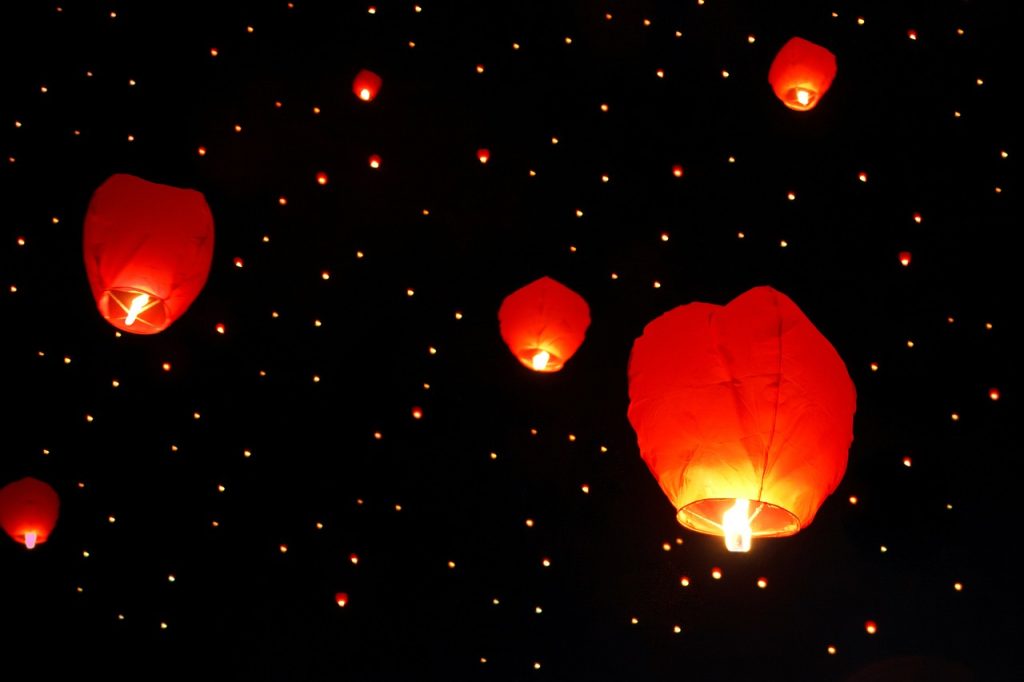
The Cultural and Interfaith calendar shows some important events across 2015 and 2016. Many events are celebrated here at Royal Holloway due to our multi-cultural and diverse campus. We have decided to highlight a few so that students are aware of their meanings and dates. Last term, the Holi festival was very successful and saw many students celebrating with the powdered paint! There are many events throughout the year and this calendar highlights a few of those.
To over two billion Muslims, Eid al-Fitr, also known as The Feast of Breaking the Fast, is an important celebration to announce the ending of the fasting, Ramadan, but also to thank Allah for the strength he has given them throughout Ramadan. They start celebrating by sighting the crescent moon after sunset on the last day of Ramadan. At the start of Eid, Muslims wake up early to keep with the old custom – ghusl- to cleanse their bodies before gathering outside, in an open space, to pray with their loved ones and greet each other with ‘Eid Mubarak’ which means ‘Have a blessed Eid’. After praying, Muslims usually have a big meal and give family members gifts that traditionally are given over a three day period. In Islamic countries, the three day period is an official holiday. There are usually processions on the street and a daytime meal, the first they would have since the start of Ramadan. Everyone wears their finest, newest clothes and sometimes decorate their houses. It’s a time of celebrating self-control, forgiveness and making amends as people are encouraged to settle disputes on this day. Although in Islam, charity and giving to the needy is important, it’s at the end of Ramadan that it’s significantly more important, as Muslims are obligated to help others especially helping the poor and making contributions to mosques. This festival dates back to 610AD when the Prophet Mohammed started having visions of the Angel Jibril, who then helped him write the verses for the holy book of the Quran, and that a month should be dedicated into worshipping Allah. Eid al-Fitr is a joyous occasion, as its purpose is to praise Allah and give thanks to Him.
The Hindi Holi Festival is a festival that celebrates Spring, that usually falls in March, originally set in North India. It celebrates the good over evil and knowledge over ignorance. The throwing of coloured paint comes from the story of Krishna who threw coloured water over gopis (milkmaids) which has developed into the jokes and games that happen at the Holi Festival. Hindus believe the origin of this festival comes from the story of Prahlad. Prahlad was a prince whose father, the King, wanted everyone to worship him. However, Prahlad wanted too worship Lord Vishnu instead. Prahlad’s aunt, Holika, tricked him by sitting in a bonfire to destroy him. However, as Holika used her powers for evil, she was the one who was consumed in fire. Bonfires are lit and in some places, effigies of Holika are burnt and Hindus are dressed in their finest clothes. In recent years, this festival has been commercialised and has become more popular due to the fact that it is the Festival of Colours, a time where people throw each other paint to celebrate love. Over the two days, it celebrates when wheat is harvested. What’s even more interesting is that the Festival is so popular in non- Asian countries that it’s introduced as a run. Hinduism is a religion that’s based on love and welfare, and throughout the year, there are eight other festivals which includes Rakska Bandhan in August, where sisters tie a a rakhi which is a sacred thread on their brother’s wrist. This symbolises the sister’s prayer of wellbeing and the brother’s protection of the sister.
CULTURAL AND INTERFAITH CALENDAR
2015-2016
MAY 2015
4th: Vaishaka Puja (Buddha Day)
7th: Lag B’Omer
24th-25th: Shavuot (Feast of Weeks)
25th: Lantern Floating
JUNE 2015
14th: Race Unity Day
24th-2th
16th: Martyrdom of Guru Arjan Dev
18th: Start of Ramadan (Dependent on the moon)
21st: Lithia (Summer Solstice)
JULY 2015
2nd: Asalha Puja (Dharma
Day)
4th: American Independence
Day
13th: Laila Ad-Qadr (Night of
Power)
17th: Eid Al-Fitr
AUGUST 2015
1st: Kammas (Lughnasadh)
15th: Obon
29th: Raksha Banhan (Rakhi)
SEPTEMBER 2015
5th: Krishna Janmashtami
15th: Start of National Hispanic Heritage
Month
16th: Mexican Independence Day
17th: Constitution and Citizenship Day
23rd: Eid Al-Adha
OCTOBER 2015
Black History Month
4th: Hoshanah Rabbah
6th: Simchat Torah
9th: Birth of Guru Ram Das
NOVEMBER 2015
9th: Kristallnacht Anniversary
11th: Diwali
12th: Birth of Baha’u’llah
16th: International Day for Tolerance
23rd: Niiname Festival
DECEMBER 2015
8th: Bodhi Day
22nd: Yule (Winter Solstice)
26th: Start of Kwanzaa
JANUARY 2016
1st: Oshogatsu (Shogatsu)
5th: Birth of Guru Gobind Singh
11th: Seijin Shiki (Coming of Age Day)
13th: Lohri
25th: Tu B’Shvat
23rd: Ashura
31st: All Hallow’s Eve
FEBRUARY 2016
2nd: Imbolc
8th: Lunar New Year
12th: Darwin Day
15th: Paranirvana
MARCH 2016
3rd: Hina Matsuri
8th: International Women’s Day
23rd: Holi
24th: Hola Mohalla
26th: Khordad Sal
